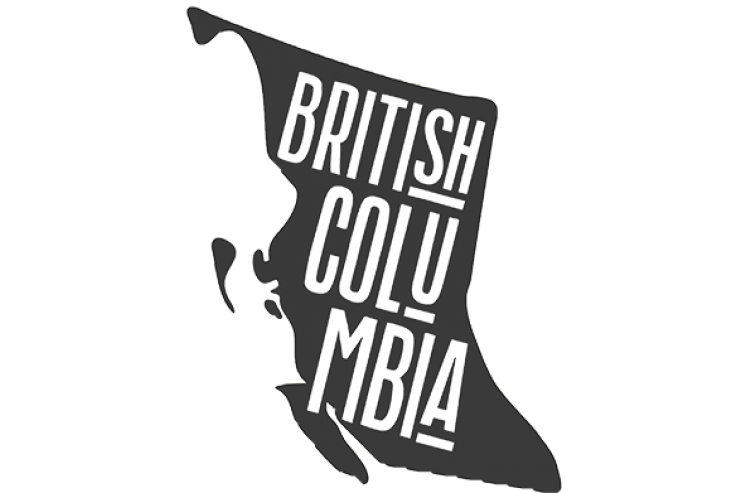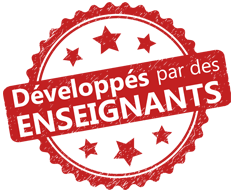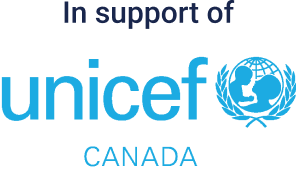British Columbia Grade 7

Made by a Grade 7 teacher in British Columbia.
Kids Boost Immunity (KBI) provides educational content (lessons and support materials) developed by teachers and where needed, health experts, that is directly linked to curriculum and is available completely for free. Each lesson is paired with an online quiz that students can take on a laptop, tablet, or phone. Every time a student scores 80% or higher on a quiz, we donate life-saving vaccines to UNICEF Canada. To learn more about KBI, click here.
Click on the overarching curriculum themes below to see the curriculum outcomes that match KBI educational content. The full Grade 7 British Columbia Curriculum Connections document is here.
- Physical and Health Education
-
Curricular outcomes:
Physical and Health Education - Content
- Practices that reduce the risk of contracting sexually transmitted infections and life-threatening communicable diseases
Applicable KBI lessons:
1. Vaccine Preventable Diseases
- Lesson worksheet/answers
- Science
-
Curricular outcomes:
Science - Curricular Competency
- Planning and conducting
- Collaboratively and individually plan, select, and use appropriate investigation methods, including field work and lab experiments, to collect reliable data (qualitative and quantitative)
- Processing and analyzing data and information
- Seek and analyze patterns, trends, and connections in data, including describing relationships between variables (dependent and independent) and identifying inconsistencies
- Use knowledge of scientific concepts to draw conclusions that are consistent with evidence
- Evaluating
- Reflect on their investigation methods, including the adequacy of controls on variables (dependent and independent) and the quality of the data collected
- Identify possible sources of error and suggest improvements to their investigation methods
- Demonstrate an awareness of assumptions and bias in their own work and secondary sources
- Demonstrate an understanding and appreciation of evidence (qualitative and quantitative)
- Exercise a healthy, informed scepticism and use scientific knowledge and findings from their own investigations to evaluate claims in secondary sources
Climate Change & The Environment
- Science - Content
- Evidence of climate change
- Change in climate affects:
- the interconnectedness of plants and animals, and their local environment
- Over geological time and the recent impacts of humans
- humans are capable of changing Earth’s landscape, climate, and systems
- Efficacy of sustainable practices
Evolution & Natural Selection
- Science - Big Ideas
- Evolution by natural selection provides an explanation for the diversity and survival of living things
- Science - Content
- Organisms have evolved over time
- Change in traits of populations over time
- Survival needs
- All organisms need space, food, water, and access to resources in order to survive
- Natural Selection
- The natural process by which certain traits that have a greater fitness for their environment lead to a reproductive advantage; this process happens within a population over time because of genetic variation
- Organisms have evolved over time
Applicable KBI lessons:
1. Critical Thinking & Evaluating Information
- Literacy builder worksheet/answer guide
- Lesson worksheet/answers
- Video worksheet/answers
- Inquiry activities/answer guides
- Numeracy activity/answers
2. Environment & Climate Change
- Literacy builder worksheet/answer guide
- Lesson worksheet/answers
- Video worksheet/answers
- Inquiry activities/answer guides
- Numeracy activity/answers
3. Evolution and Natural Selection
- Literacy builder worksheet/answer guide
- Inquiry activities
- Planning and conducting
- English Language Arts (ELA)
-
Curricular outcomes:
ELA - Big Ideas
- Questioning what we hear, read, and view contributes to our ability to be educated and engaged citizens
ELA - Content
- Strategies and processes
- Reading strategies
ELA - Curriculum Competency
- Comprehend and connect (reading, listening, viewing)
- Access information and ideas for diverse purposes and from a variety of sources and evaluate their relevance, accuracy, and reliability
- Apply appropriate strategies to comprehend written, oral, and visual texts, guide inquiry, and extend thinking
- Synthesize ideas from a variety of sources to build understanding
- Recognize and appreciate how different features, forms, and genres of texts reflect different purposes, audiences, and messages
- Think critically, creatively, and reflectively to explore ideas within, between, and beyond texts
- Respond to text in personal, creative, and critical ways
Applicable KBI lessons:
1. Critical Thinking & Evaluating Information
- Literacy builder worksheet/answer guide
- Lesson worksheet/answers
- Video worksheet/answers
- Inquiry activities/answer guides
- Numeracy activity/answers
2. Navigating the World of Online (Mis)Information
- Literacy builder worksheet/answer guide
- Inquiry activity
Curriculum-Related Themes Throughout the Year
- First Peoples - Truth and Reconciliation
-
Curricular outcomes:
Core Competencies - Personal and Social
- Social Awareness and Responsibility
- Valuing Diversity
- Students value diversity, defend human rights, advocate for issues, and interact ethically with others. They are inclusive in their language and behaviour and recognize that everyone has something to contribute. Their approach to inclusive relationships exemplifies commitment to developing positive communities.
Applicable KBI lessons:
1. Life on Turtle Island
- Literacy builder worksheet/answer guide
- Lesson worksheet/answers
- Inquiry activities/answer guides
- Remembrance/Veterans/Memorial Day (November)
-
Curricular outcomes:
English Language Arts - Big Ideas
- Exploring stories and other texts helps us understand ourselves and make connections to others and to the world
- Exploring and sharing multiple perspectives extends our thinking.
English Language Arts- Curriculum Competency
- Comprehend and connect (reading, listening, viewing)
- Think critically, creatively, and reflectively to explore ideas within, between, and beyond texts
- Recognize and identify the role of personal, social, and cultural contexts, values, and perspectives in texts
- Recognize and appreciate the role of story, narrative, and oral tradition in expressing First Peoples perspectives, values, beliefs, and points of view
Physical and Health Education (PHE) - Big Ideas
- We experience many changes in our lives that influence how we see ourselves and others.
Applicable KBI lessons:
1. Remembrance Day / Veterans Day / Armistice Day
- Building Leadership Skills To Make A Difference For Others (December)
-
Curricular outcomes:
Core Competency - Personal and Social
- Social Awareness and Responsibility
- People who are socially aware and responsible contribute to the well-being of their social and physical environments
English Language Arts - Big Ideas
- Exploring stories and other texts helps us understand ourselves and make connections to others and to the world
Applicable KBI lessons:
1. Winter Break - A Time To Reflect on Making a Difference
- Inquiry/creative activities
- Social Awareness and Responsibility
- Black History & Refugee Experiences (February)
-
Curricular outcomes:
English Language Arts - Big Ideas
- Exploring stories and other texts helps us understand ourselves and make connections to others and to the world
- Exploring and sharing multiple perspectives extends our thinking.
English Language Arts - Curriculum Competency
- Comprehend and connect (reading, listening, viewing)
- Think critically, creatively, and reflectively to explore ideas within, between, and beyond texts
- Recognize and identify the role of personal, social, and cultural contexts, values, and perspectives in texts
Physical and Health Education - Big Ideas
- Advocating for the health and well-being of others connects us to our community
PHE - Curricular Competency
- Social and community health
- Propose strategies for responding to discrimination, stereotyping, and bullying
PHE - Content
- Consequences of bullying, stereotyping, and discrimination
Core Competencies - Personal and Social
- Valuing Diversity
- Students value diversity, defend human rights, advocate for issues, and interact ethically with others. They are inclusive in their language and behaviour and recognize that everyone has something to contribute. Their approach to inclusive relationships exemplifies commitment to developing positive communities.
Applicable KBI lessons:
1. Black History Month
2. Refugee Experiences
- Lesson worksheet/answers
- Inquiry activities
- Celebrating Inspiring Women in STEM (March)
-
Curricular outcomes:
Core Competencies - Personal and Social
- Valuing Diversity
- Students value diversity, defend human rights, advocate for issues, and interact ethically with others. They are inclusive in their language and behaviour and recognize that everyone has something to contribute. Their approach to inclusive relationships exemplifies commitment to developing positive communities.
English Language Arts - Big Ideas
- Exploring stories and other texts helps us understand ourselves and make connections to others and to the world
- Exploring and sharing multiple perspectives extends our thinking.
English Language Arts - Curriculum Competency
- Comprehend and connect (reading, listening, viewing)
- Think critically, creatively, and reflectively to explore ideas within, between, and beyond texts
- Recognize and identify the role of personal, social, and cultural contexts, values, and perspectives in texts
Applicable KBI lessons:
1. International Women's Day - Celebrating Inspiring Women in STEM
- Literacy builder worksheets/answer guides
- Numeracy activity
- Inquiry activities
- Valuing Diversity
- Learning About Infectious Diseases During Immunization Awareness Week (April)
-
Curricular outcomes:
Physical and Health Education - Content
- Practices that reduce the risk of contracting sexually transmitted infections and life-threatening communicable diseases
- Sources of health information
Applicable KBI lessons:
1. Immunization Awareness Week
2. The Spread of Infectious Diseases




